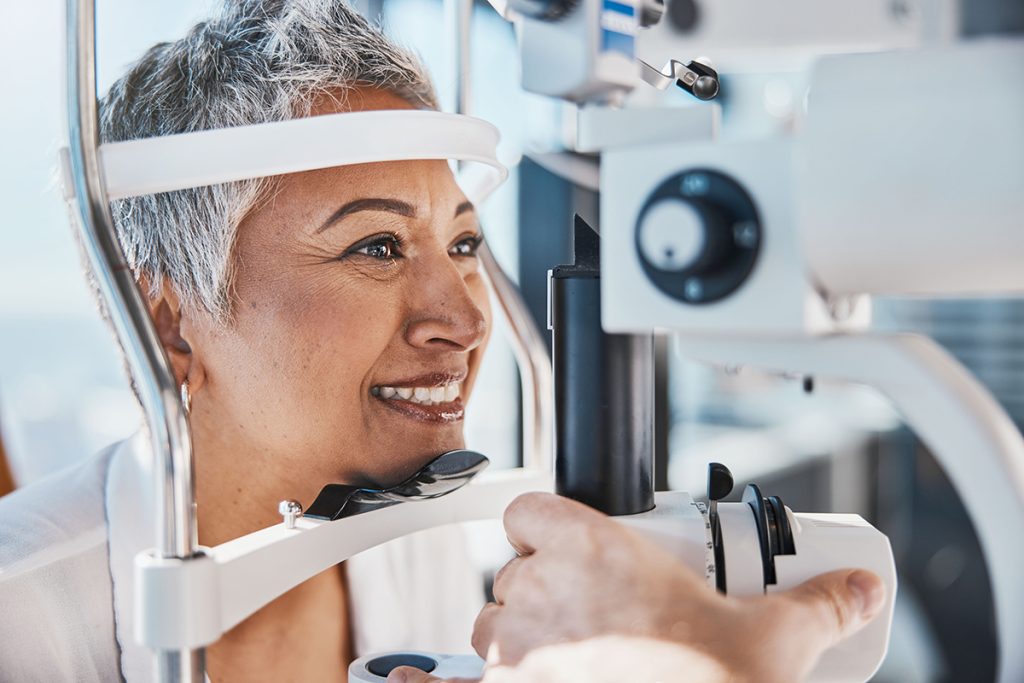
Diabetic retinopathy, glaucoma, and macular degeneration are eye diseases that can damage your internal eye structures before you experience any symptoms. Unfortunately, these conditions often cause permanent vision loss before they are diagnosed. Regular eye exams are crucial to maintaining good ocular health and avoiding vision loss. At Berks Eye Physicians & Surgeons, our eye doctors can often detect early signs of eye disease at these appointments to prevent vision loss with timely diagnosis and treatment.
Comprehensive eye exams include various tests, including your visual acuity, to diagnose refractive errors. Our eye doctors examine your visual field by moving a finger from side to side and use a series of color images to test for color blindness. Computer testing maps your cornea to diagnose astigmatism, and dilated eye drops allow our eye doctors to visualize and examine the internal structures, such as your retina, lens, optic nerve, and blood vessels. A slit lamp magnifies your eye structures, and a tonometry test measures internal eye pressure. These measures ensure long-term eye health with early diagnosis of eye diseases and other concerns.
Early Detection of Eye Disease Can Prevent Vision Loss
Vision impairment affects every area of your life, but vision loss is often avoidable with early detection of eye diseases during routine eye exams. Like all health concerns, it’s best to diagnose eye problems early, when they’re most treatable, and before they impact your quality of life. Some changes in the eye can signal a larger health concern, such as undiagnosed diabetes, high cholesterol, or high blood pressure. These eye exams ensure you maintain your eyesight for longer and may help improve your overall health.
If you experience vision changes, schedule an eye exam immediately to avoid further vision loss. It’s easy to take good vision for granted, and some eye diseases are unforgiving. Don’t neglect your eye health; schedule eye exams as often as recommended to maintain clear, crisp vision.
How Often Should You Have an Eye Exam?
People with refractive errors should have annual eye exams to update their vision prescription for glasses or contact lenses. However, even people who don’t require corrective eyewear should have regular eye exams to evaluate their eye health, especially if they have risk factors for eye disease. A high-risk person may need an annual eye exam or more frequent visits, while low-risk people should schedule an appointment every two years.
Risk factors for eye diseases include:
- Family history of eye diseases
- Persons over 60
- People of African or Latino descent
- Previous eye injury or surgery
- Chronic health conditions (diabetes, heart disease, obesity, etc.)
Schedule Your Eye Exam Today
Don’t put off your next eye exam. These appointments are crucial to maintaining a healthy eye and good vision. Schedule a comprehensive eye exam at Berks Eye Physicians & Surgeons in Wyomissing, Pennsylvania. Request an appointment online or call (610) 372-0712.
 1802 Paper Mill Road, Wyomissing, PA 19610
1802 Paper Mill Road, Wyomissing, PA 19610

